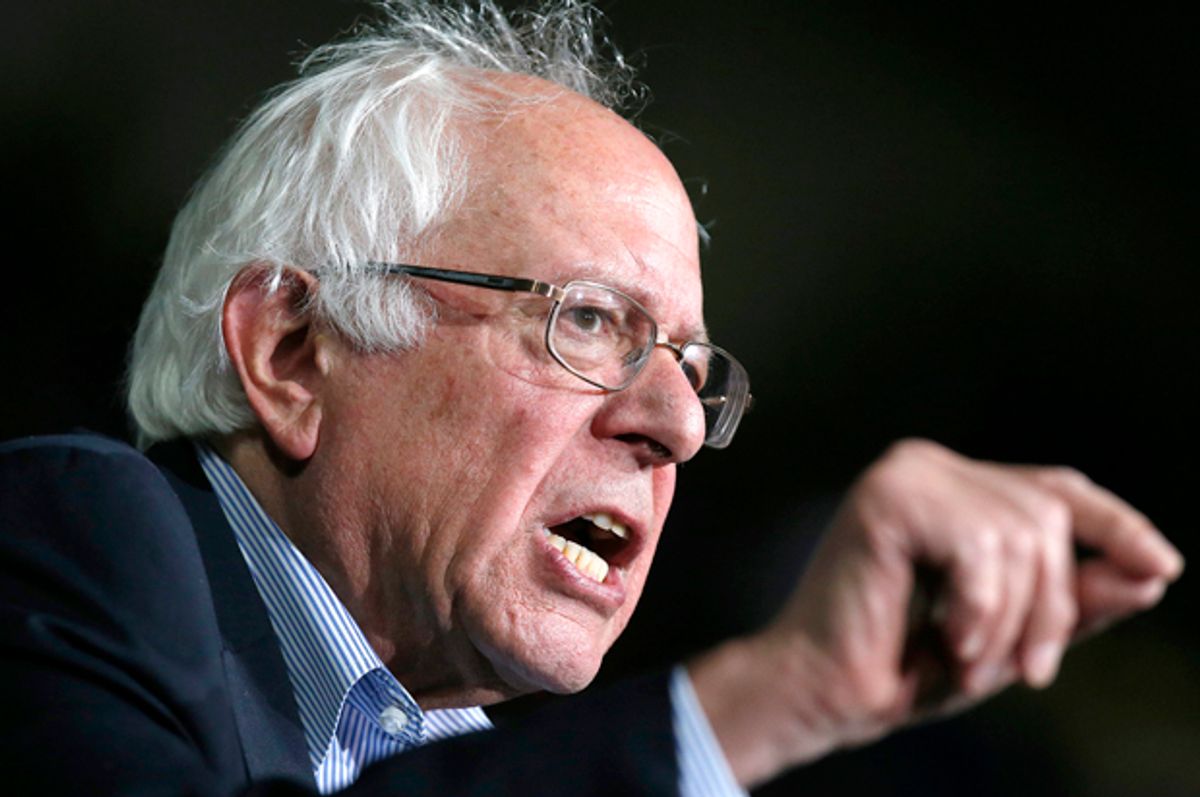The first democratic debate has come and gone, and while it probably hasn't changed much in terms of polling, it was a good night for progressives. The majority of pundits have called Hillary Clinton the winner, while social media, online polls, and focus groups have been overwhelmingly more favorable for Sen. Bernie Sanders (I-VT). Overall, both frontrunners did what they had to do. Predictably, Sanders was called out on gun control, Clinton was called out on flip-flopping, while Martin O’Malley was called out on his record as the mayor of Baltimore. As others have said, the debate was a reasonable discussion of the issues, and exposed the first two GOP debates for the clownish debacles they were.
Things did, however, get a bit testy when the topic of Wall Street came up, and this was one of the few areas where Clinton really stumbled -- although Sanders was generous not to go after her close associations with big banks. After all, her top donors over the past decade and a half have been banks like Citigroup and Goldman Sachs, and she and Bill have made a fortune on the lecture circuit, giving quarter-million-dollar speeches for the aforementioned financial institutions.
When the discussion of big banks and regulation came up, Clinton played the experience card, and brought up her history of representing Wall Street in her Senator days. “I represented Wall Street as a Senator from New York,” said Clinton, “and I went to Wall Street in December of 2007, before the big crash that we had, and I basically said, ‘cut it out,’ ‘quit foreclosing on homes,’ ‘quit behaving in the speculative behaviors.’”
Needless to say, this was an embarrassing moment for Clinton, who “represented” Wall Street from 2001 to 2009, as the speculation raged, after her husbands administration repealed Glass-Steagall and refused to regulate the derivative market. Sanders, who shook his head in disbelief, responded, “Congress doesn't regulate Wall Street. Wall Street regulates Congress. Saying ‘please do the right thing’ is kind of naïve.”
Clinton is not naive, nor is she her husband, but her history and association with Wall Street is nonetheless concerning. As business writer William D. Cohen wrote for Politico last November:
“While the finance industry does genuinely hate [Elizabeth Warren], the big bankers love Clinton, and by and large they badly want her to be president... None of them think she really means her populism.”
So, is her recent populist rhetoric real? It could be. But Sanders and many other progressives have a legitimate right to be concerned. During the debate, Martin O’Malley called Clinton out for her opposition to Glass-Steagall, the New Deal legislation that prevented commercial banks and investment banks (and insurance companies) from merging into too-big-to-fail financial institutions. Bill Clinton’s repeal of Glass-Steagall may not have directly led to the financial crisis, but there is little doubt that it played a part, and led to enormous bank mergers. As Sanders has pointed out, the too-big-to-fail banks are bigger than ever.
Senator Elizabeth Warren (D-MA), who supports reinstating Glass-Steagall, summed up why last year:
“That high wall between high-risk trading and boring banking was punched full of holes until in the late 1990s, it was knocked down when Glass-Steagall was eventually repealed. And not long after that, the worst crash since the 1930s hit the American economy.”
When it came to the topic of “capitalism,” the discussion was more cordial, which may have surprised those who believe Sanders is a Soviet-supporting “socialist.” (Surprise, he's not.) There seems to be agreement amongst Democrats that an unfettered and unregulated free market is not a good idea for economic stability or equality. (To deny this is to deny economic history.) Sanders and Clinton both voiced their support of small businesses and entrepreneurs, though Sanders could have separated himself by bringing up the topic of employee ownership and worker co-ops, which he has been very vocal about in the past.
Channeling Franklin Roosevelt and the New Deal, Clinton said that every so often, we have to “save capitalism from itself.” This was the mission of John Maynard Keynes, who was a strong supporter of the capitalist system, but aware of its many defects. Keynes wanted to save capitalism from itself, or prevent another economic system, i.e. socialism, from taking its place in times of crises. As Keynes said in the midst of the Great Depression, if nothing were to be done, leaders "must expect the progressive breakdown of the existing structure of contract and instruments of indebtedness, accompanied by the utter discredit of orthodox leadership in finance and government, with what ultimate outcome we cannot predict.”
Another aspect of this philosophy is to prevent major economic crises in the first place, by taming the free market, preventing dangerous speculation, and keeping unemployment low. None of this is at all radical, and it is a good sign that Democrats, for the most part, agree in regulating the market to varying degrees. But the economy is very different from the one in the 1930s, and the question of capital ownership mustn't be ignored.
These discussions were the most interesting of the night, and while there was a general consensus of what needs to be done to make the market work for everyone, important differences remain. These are the areas were Sanders must assert himself during the next debates. While he doesn't like playing politics, this is where he thrives, and where Clinton has legitimate vulnerability.

Shares